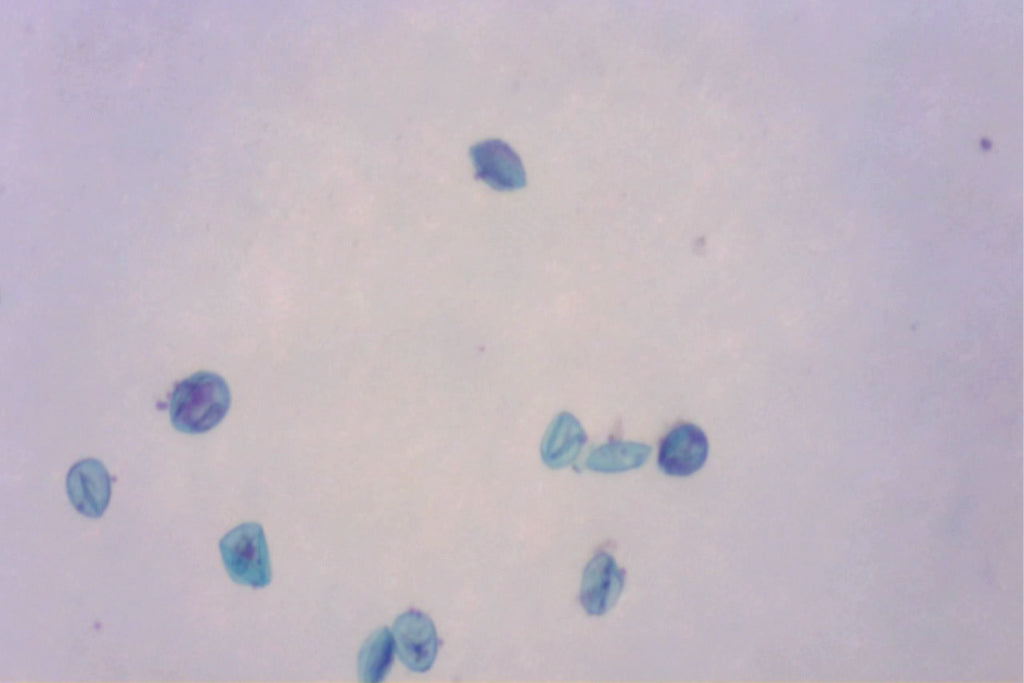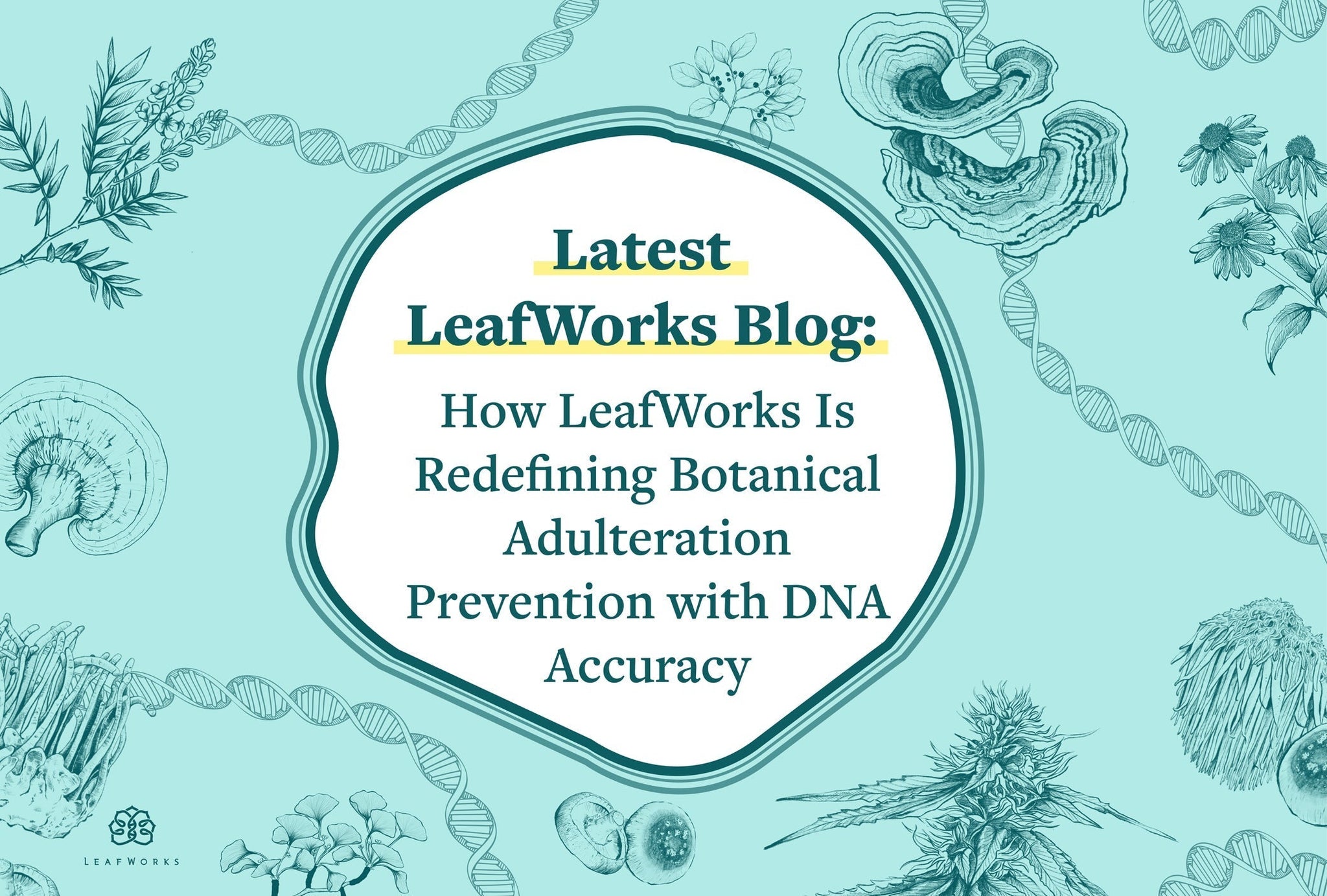LeafWorks Discovers Male Sterility Genes in Cannabis and Builds Patent-Pending Technology To Help Clients Manage Male Flowering

Our New RNA Spray Prototype Combats Cannabis Hermaphroditism, Offers Affordable Male-Sterile Line Capability for Growers.
Introduction
In answer to many calls from LeafWorks’ clients for a solution to the hermaphroditism problem, LeafWorks discovered the genes underlying male sterility in cannabis and has introduced a cutting-edge non-GMO RNA spray designed to control male sterility genes.
Hermaphroditism is one of the most difficult agricultural problems in cannabis and hemp. Hermaphroditic plants, which develop both male and female flowers, are common in commercial cultivation and can significantly harm crop success and product quality by causing unwanted pollination. Pollination significantly lowers cannabinoid and terpene production (Lipson Feder et al., 2021), shrinks flower size and number (Small and Naraine, 2015), and turns valuable flower into low-quality seeded product.
To solve this problem, LeafWorks developed a prototype spray that allows farmers to induce pollen sterility should male flowers form. It is highly effective- with a reduction of pollen viability by 60% even with a single dose. This proprietary RNA-based spray technology will benefit the entire industry. RNA forms naturally, is biodegradable and is all around us. By using such RNA molecules designed to be highly specific to its target—in this case, the male sterility genes in cannabis—the sprayer can control male flower formation using natural, endogenous mechanisms to the plant. This technology's high specificity also prevents off-target effects on beneficial organisms or humans.
Male sterility, a condition in which plants' male reproductive organs do not produce viable pollen, is also a crucial trait in crop breeding programs because it enables the development of hybrid seeds with superior yield, quality and uniformity compared to conventionally bred cultivars (e.g., F1 hybrid seed). Akin to the industry’s use of STS (silver thiosulfate) to induce male flowering, LeafWorks’ spray technology can be applied to plants to make 100% male-sterile seed lines for hybrid-line production. With this technology, LeafWorks is leading the way for commercial cannabis and hemp breeders to produce hybrid seeds at scale.

|

|
| Before | After |
Figures 1 and 2: Pollen stains before and after RNA spray application, respectively, on the same plant, six days after a single application. Plump, round pollen grains with dark contents (purple stain) inside the grain indicate complete pollen viability. Pollen grains that look shriveled, fully or largely empty without dark contents inside (blue stain) are not viable.
Why Uncontrolled Hermaphroditism Hurts:
Pollination significantly lowers terpene and cannabinoid production (Lipson-Feder et al., 2021).
The longer female plants go unpollinated, the more flowers are produced and the larger they get (Small and Naraine 2016).
Male pollen contamination from hermaphroditic plants creates seeded product, reducing usable volume and quality and value of the crop.
Benefits from this technology:
- Establishes a means for farmers to control pollen production using natural plant mechanisms.
- Eliminates risk of cross pollination from undesired hermaphroditic flowers
- Produces male-sterile plants useful for efficient hybrid seed production.
- Highly specific to just Cannabis sativa.
LeafWorks is seeking partners to continue the development of this anti-hermaphroditism RNAi foliar spray. Please inquire to learn more about partnership.
FREQUENTLY ASKED QUESTIONS
What is RNAi?
RNAi, or RNA interference, is a natural process found across the tree of life, including plants, that uses short, double-stranded RNA (dsRNA) to bind to mRNA and degrade them so they do not produce proteins. It is one of nature’s ways of silencing gene expression. Plants use RNAi to regulate their own gene expression in response to their environment and fight against transposable elements and viral activity.
How does it work?
This is a plant spray that you apply to the leaves, or anywhere on the plant. The highly specific RNA molecules that match target genetic sequences you want to silence are taken up by the plant and tell the plant’s natural silencing mechanisms to degrade mRNA transcripts so proteins are never formed.
How sustainable is it?
Naked RNA molecules degrade within hours, sometimes up to 24 hours. Some formulations can include stabilizers that can allow it to last for a few weeks. Whenever it degrades, it breaks down the same as the RNA all around us.
Is this considered a GMO product?
No, RNAi does not modify the plant’s genome. It silences the mRNA produced from gene expression so those transcripts are not translated into proteins.
Have we checked for off-target hits?
Yes, we have done extensive off-target hit analysis for both cannabis and humans. We are still in the prototype stage and our product would undergo extensive safety testing prior to any commercialization.
Is altering sex in cannabis common?
Using sprays to alter the sex in cannabis plants is not a new technique. Breeders commonly use chemical sprays to create feminized seeds by activating the male flower genes. However, until now, no products have been able to successfully deactivate these male genes.
Why did you develop this technology?
We are asked all the time if we have any tools that can help farmers control hermaphroditism or to help them breed. This technology offers solutions for both.
Have you patented this?
Our technology is patent-pending. We submitted a patent not just to safeguard our hard work as intellectual property, but to keep it out of the hands of large enterprises who would use it exclusively for their own benefit. We believe this technology is useful to and should be accessible to everyone. By patenting it, we can ensure that.
How can I try it out?
This product is not available for commercial use, but if you want to support its development in our quest to help people manage hermaphroditism, please contact info@leafworks.com.
References
Lipson Feder C, Cohen O, Shapira A, Katzir I, Peer R, Guberman O, Procaccia S, Berman P, Flaishman M, Meiri D. Fertilization Following Pollination Predominantly Decreases Phytocannabinoids Accumulation and Alters the Accumulation of Terpenoids in Cannabis Inflorescences. Front Plant Sci. 2021 Nov 5;12:753847. doi: 10.3389/fpls.2021.753847. PMID: 34804093; PMCID: PMC8602813.
Small, E. A., and Naraine, G. U. (2015). Expansion of female sex organs in response to prolonged virginity in Cannabis sativa (marijuana). Genet. Resour. Crop Evol. 63, 339–348. doi: 10.1007/s10722-015-0253-3


